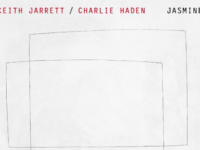photo: Jimmy Katz
Keith Jarrett, who turns 76 today (May 8), has been a persistent presence in jazz since his days in Charles Lloyd’s band in the mid-60s. But as one of the best-known living jazz pianists, there have been relatively little in the way of tributes to his contributions to the form and even though he will, hopefully, be with us for many more years, a series of strokes a few years ago have permanently sidelined him.
Another jazz pianist, Noah Haidu, stepped up to rectify the situation. Slowly: Song For Keith Jarrett is a paean to the beauty of Jarrett’s music and his intensely personal style.
There are two things to appreciate about Haidu’s approach to this significant undertaking before even listening to a single note. First, though Jarrett had composed many good songs over his career – including one cherished by a certain rock band – he has always been primarily known for either interpreting standards or making up music on the spot. Thus, Haidu’s song repertoire consists mostly of originals from the trio that portrays the zeitgeist of Jarrett mixed in with a few, hastily-chosen standards favored by Jarrett.
Secondly, as Jarrett had for decades headed a standard trio backed by elite bassist and drummer (Gary Peacock, Jack DeJohnette), so has Haidu gone top-shelf for his own rhythm section: bassist Buster Williams and drummer Billy Hart.
The song cycle gets started with Williams’ balletic “Air Dancing,” and Haidu wastes no time in favoring melody and feel over ham-handed display of chops. His delicate touch is used in creating a story, a progression that originates from the soul. The composer follows with his own vulnerable aside, and though the song runs for over ten minutes, it goes by so quickly.
Billy Hart is responsible for “Duchess,” and his cymbal touches are just-right while Haidu handily glides through the various chord changes, and Williams matches him for lyricism.
“What a Difference a Day Makes” is a standard by María Grever that was popularized by Dinah Washington in the late 50s, and Haidu swings the heck out of it, even vocalizing along to it as Jarrett was famous for doing (note: Jarrett’s vocalizing along with his piano lines has long been a source for controversy but I’m a fan of it).
“Rainbow” is the lone song of this batch composed by Jarrett, and it’s particularly Bill Evans in style. Haidu taps into the essence of the melody, just as Jarrett himself treats other people’s songs. Tagged to the end of “Rainbow” is Haidu’s own “Keith Jarrett,” the change signaled by Hart’s feature on primarily the toms, and Haidu’s song does a nice job reflecting Jarrett’s funky gospel side.
Simply by drawing out “Georgia On My Mind,” Haidu is able to reveal more about the majesty of that melody, something he’s surely picked up from KJ.
Haidu wrote the piano-only “Slowly” with Jarrett’s own unique improvising style in mind, as Haidu rightly asserts that Jarrett solos are a “genre unto itself.” He introduces a distinctive motif and variates on it with his left hand while offering complementing figures with his right hand.
Hart’s “Lorca” sees the drummer who is tastefully subdued through most of the album open up here and gently nudging Haidu to do the same. The ballad “But Beautiful” is played quietly, unhurried and wonderfully uncluttered and pure in its presentation; Williams yearning bass solo is exquisite.
Undertaking honoring the large legacy of Keith Jarrett’s music and artistry is a tall task and one that Noah Haidu took with the utmost seriousness. His attention to all the different facets that had made Jarrett such a major jazz figure of the last fifty years paid off with an album worthy of its incomparable subject.
Slowly: Song For Keith Jarrett is now available, from Sunnyside Records.



